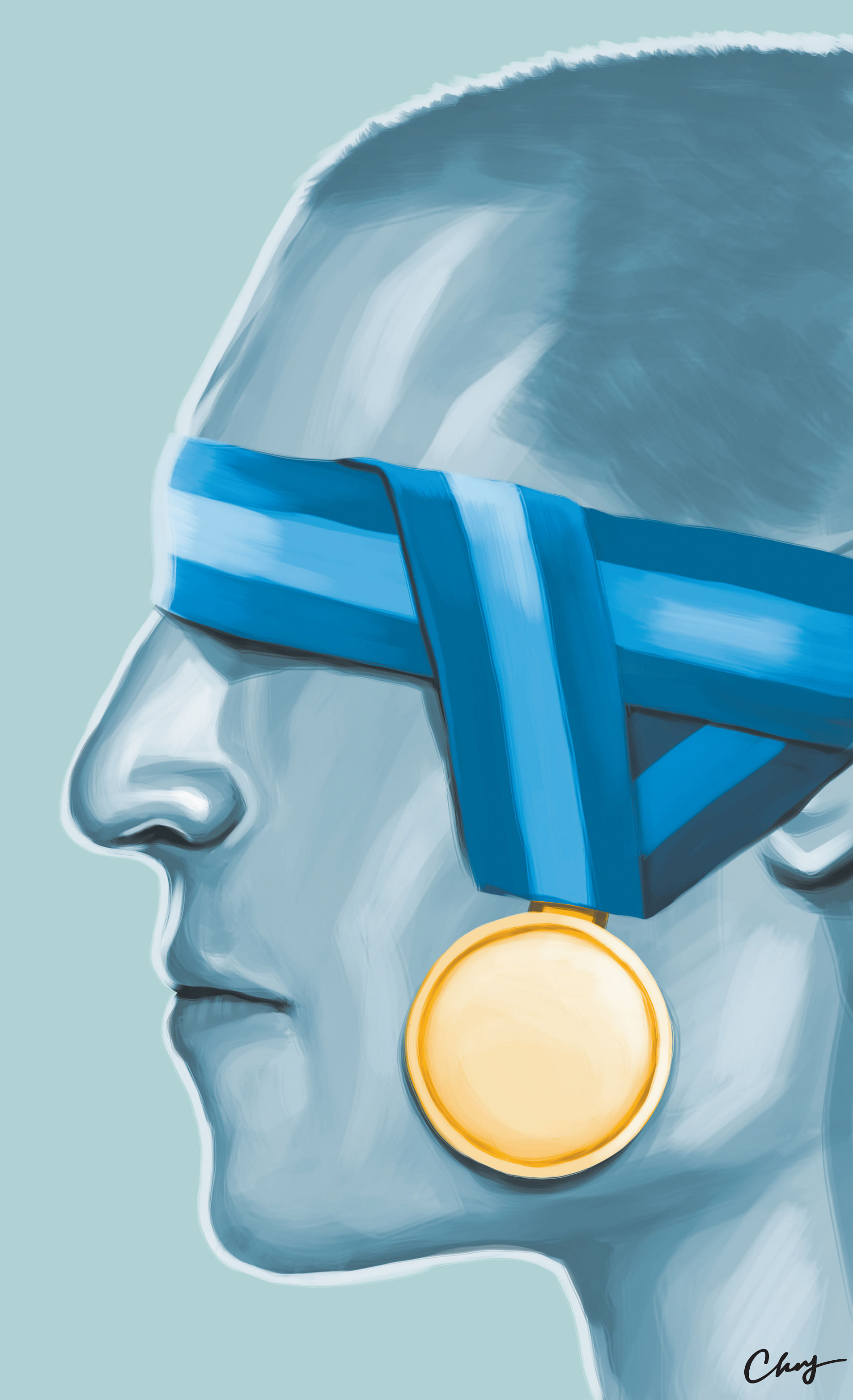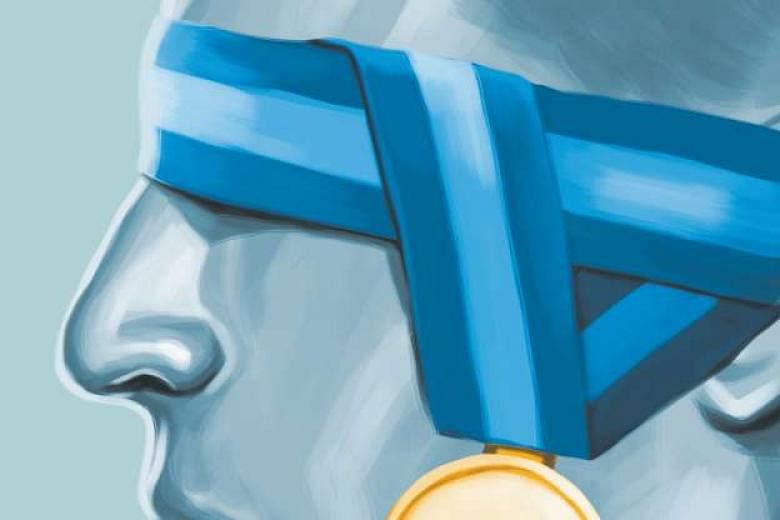I have a sneaking sympathy for disgraced cyclist Lance Armstrong, whose real problem is his addiction to winning.
Unless you have felt the endorphin surge of leaving a competitor in the dust, it is impossible to understand just how tempting it can be to cross the line to be the first across the finish.
I like winning. Who doesn't? Winners get medals, ribbons, prize money and, for a few short moments, the illusion that nothing matters except your achievement.
Maybe the medal is plastic, the ribbon unravelling and the prize money barely enough to buy that book you really wanted. Maybe the achievement was merely outpacing eight other seven-year-olds in a swim meet, nothing even the proudest parents should write to the papers about.
Yet the moment you wipe the chlorinated water from your eyes and realise you are the first to climb out of the pool, a heady cocktail of dopamine floods your body and makes you feel like you could jump into a raging sea, swim the breadth of the Pacific Ocean and overpower any number of giant squids along the way.
The painful corollary to this is that losing the swim meet a year later means an eight-year-old climbs out of the pool shivering because of the temperature change and adrenaline withdrawal. The chemical flooded her system to make her power through the water - but not fast enough to place among the top three in her age group - and now, energy reserves exhausted, there is no dopamine being released to fool the brain into forgetting the muscle ache and the cold sensation of being just not good enough.

Winning is literally addictive, your body rewarding you for something it has managed to achieve. Society reinforces this too: Career success gets you money, running the fastest 100m race in the world makes you a household name, topping the class in secondary or even primary school wins prizes from parents.
After about 20 years avoiding sports, today I'm an amateur athlete rediscovering what my body can do, loving the endorphin rush that comes with every completed race.
This year, I finished two 5km road races and two 10km races and decided to compete in a swim-run event that took place two Saturdays ago. A 750m open-water swim was followed by a 5km run at Changi Beach Park.
As triathletes know, training for multi-sports is entirely different from training to run short distances. Athletes not only sculpt their bodies through lifting weights and long runs, but must also swallow nutrients and fluid in carefully titrated amounts gauged to push the body to maximum performance.
I learnt this the hard way during my first open-water training swim, when I swallowed enough salt water to affect the afternoon tides. Crawling out of the water, I put my shoes on and attempted a run. I got about 50m before the world swam before my eyes, my stomach spasmed and I begged my sibling, who was playing coach, to take me home so I could die in peace.
Then I drank about a litre of water with just the right amount of dissolved electrolyte tablets and felt the heavens right themselves, my body unfolded and the prospect of a run became downright exhilarating.
Suddenly, I had life-changing evidence that an infusion of chemicals could make me feel better and perform amazing athletic feats.
Athletes who are into multi-sports such as the triathlon, or endurance races that push the body to physical efforts requiring far more than the energy reserves a human can store inside the body, know that the race is about technique as much as training.
Even amateurs will spend hours debating whether products with caffeine should be eaten during a race - caffeine reduces aches and can make you run faster, but it also affects digestion. We argue the merits of ingesting 100ml of fluid an hour over 200ml - how much is too much? - and whether certain types of swimsuit material will cut seconds off our swim time.
We are racing against our own personal clocks and towards a coveted space in the top ranks of some small local event that may not even have prize money. To win that spot, we willingly spend $200 on compression wear that is advertised to keep muscle exhaustion at bay. Because competing is thrilling, but beating the competition is addictive.
I'm not alone in this. Athletes will turn to ancient medicine or cutting-edge research laboratories if they think it will make them speedier. After Christopher McDougall wrote in his 2009 book Born To Run about a little-known tribe in Mexico renowned for its running endurance who fuelled on chia seeds, health food stores were over-run with demands from amateur runners wanting a hit of this magic potion.
How much harder must it have been for Armstrong to resist temptation? The cyclist stripped of his Tour de France wins for doping was a cancer survivor who injected unnatural levels of the natural substance erythropoietin into his body. Erythropoietin pumps up blood cells, allowing the body to store more oxygen and go faster for longer periods of time.
Armstrong did this because he was competing in a culture where every top athlete was ingesting drugs, from amphetamines in the 1960s to steroids and then even less-detectable drugs.
His story has been turned into a movie showing now, The Program, which I and a few other amateur athletes of my acquaintance agree misses the fundamental point: Everyone else was doing it too. There were the official rules and then there were the real rules of the race. Armstrong obeyed the latter. When it comes to the elite of the sporting world, everything that can give you an edge counts. It is a race against technology, as one of my new triathlete friends told me after our swim-run. The bodies governing sports can ban one thing, but the athletes are already looking for the next barely legal performance enhancers. A dragon-boat racer who spit on Armstrong for breaking the rules told me that he himself bends them. Before the starting signal is given, teams have to keep their boat in place with one member holding onto a rope. He strains to the very limit of his arm's length when doing this duty because every single millimetre might count at the finish line. "Everyone would do it," he told me. "If I can do it and not get caught..."
What is the difference between bending the law and breaking the law? It is the difference between stretching your rope and cutting someone else's. The latter is despicable. The former is understandable. We bend and we strain in our pursuit for excellence, in obedience to the commands given by our dopamine-addicted brains and adrenaline-pumped hearts.
Is it any wonder that eventually the athlete who bends, breaks?


